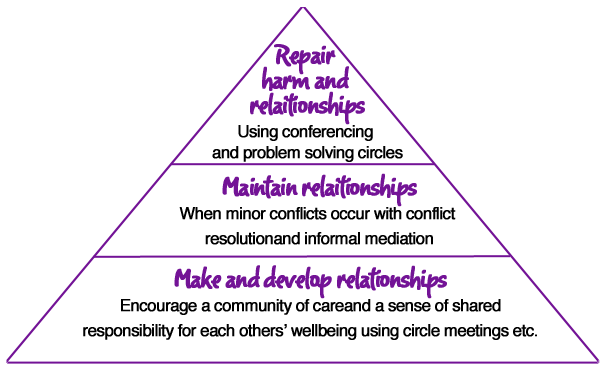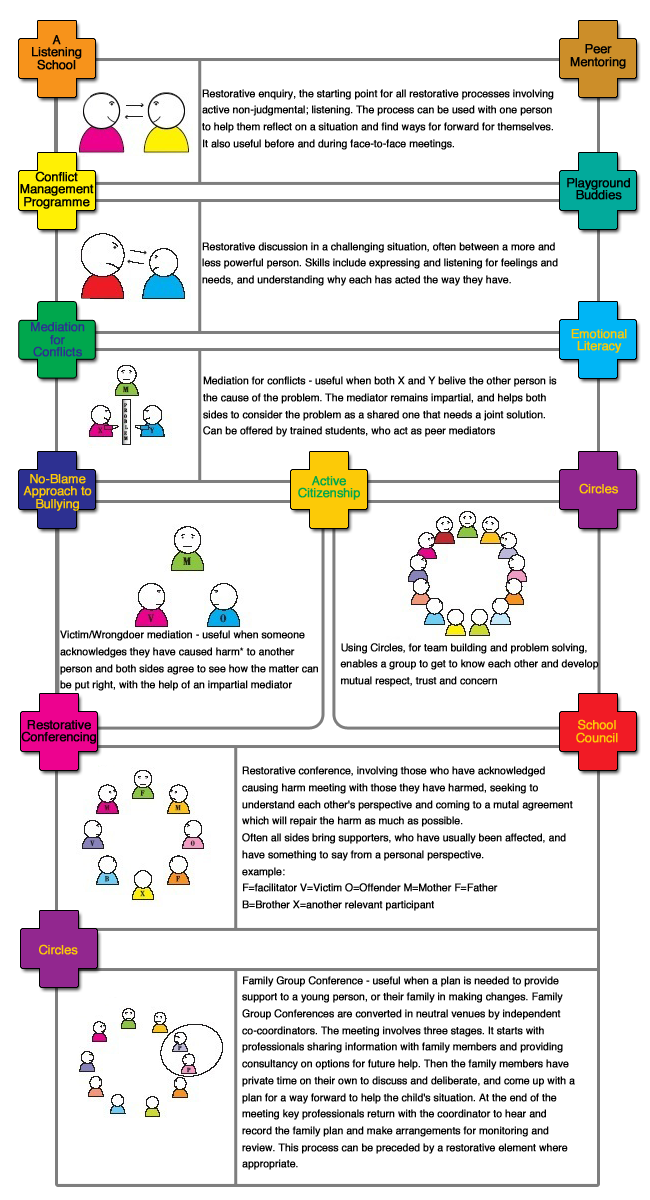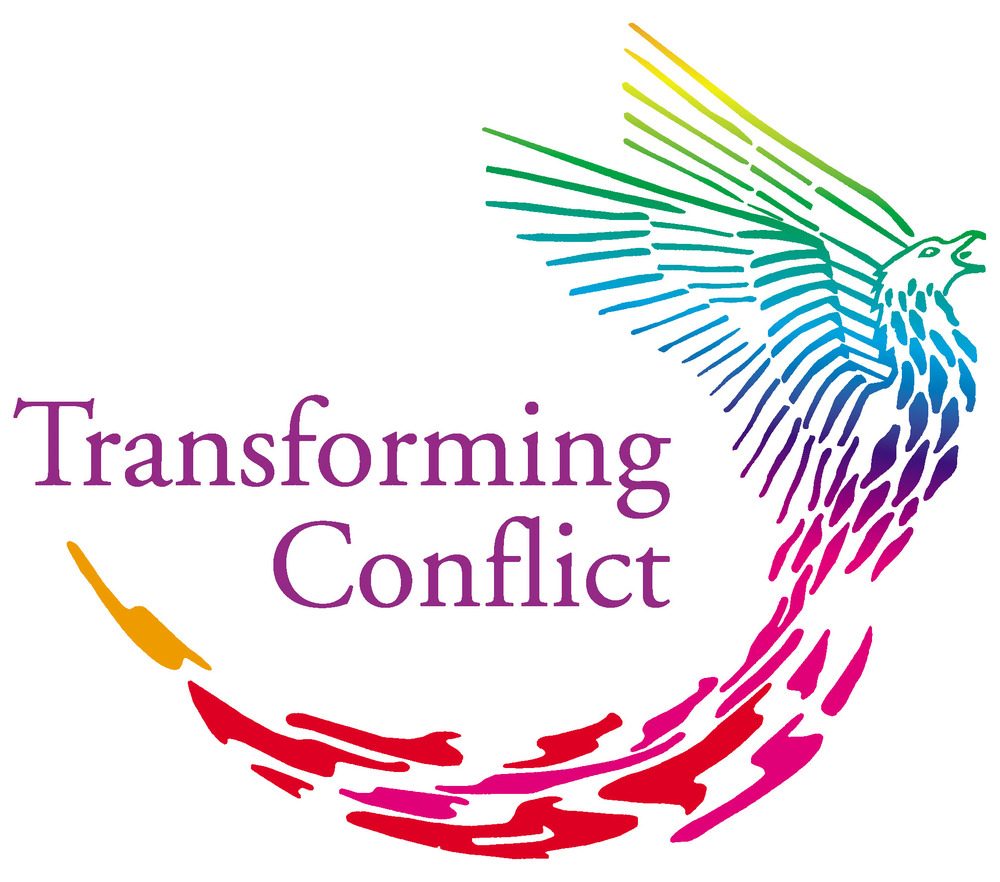Restorative Approaches
Restorative Approaches provides an underpinning ethos and philosophy for making, maintaining and repairing relationships and for fostering a sense of social responsibility and shared accountability.
There are many challenges in implementing an organisation or institution-wide approach since the restorative way challenges deeply-held notions about power and control and the urge to make things unpleasant for someone when they have done something wrong or ‘misbehaved’.
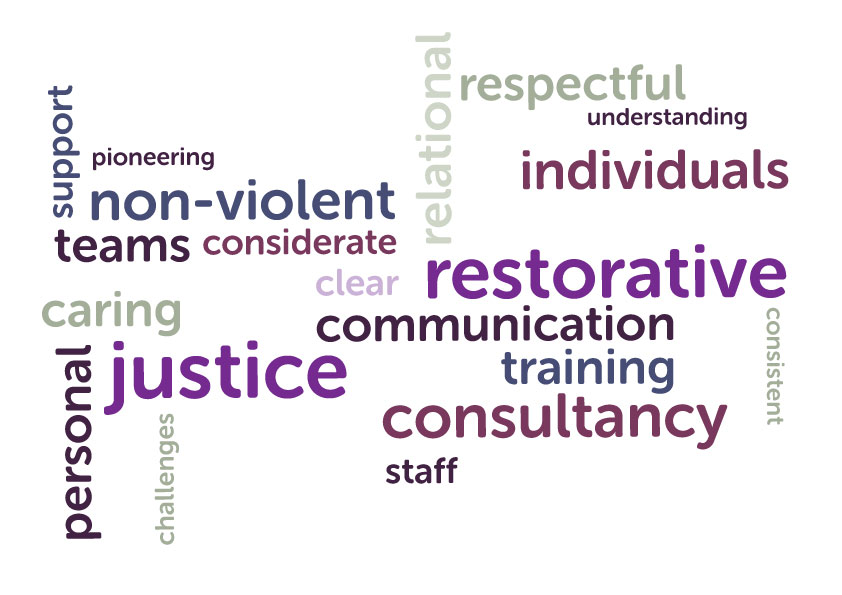
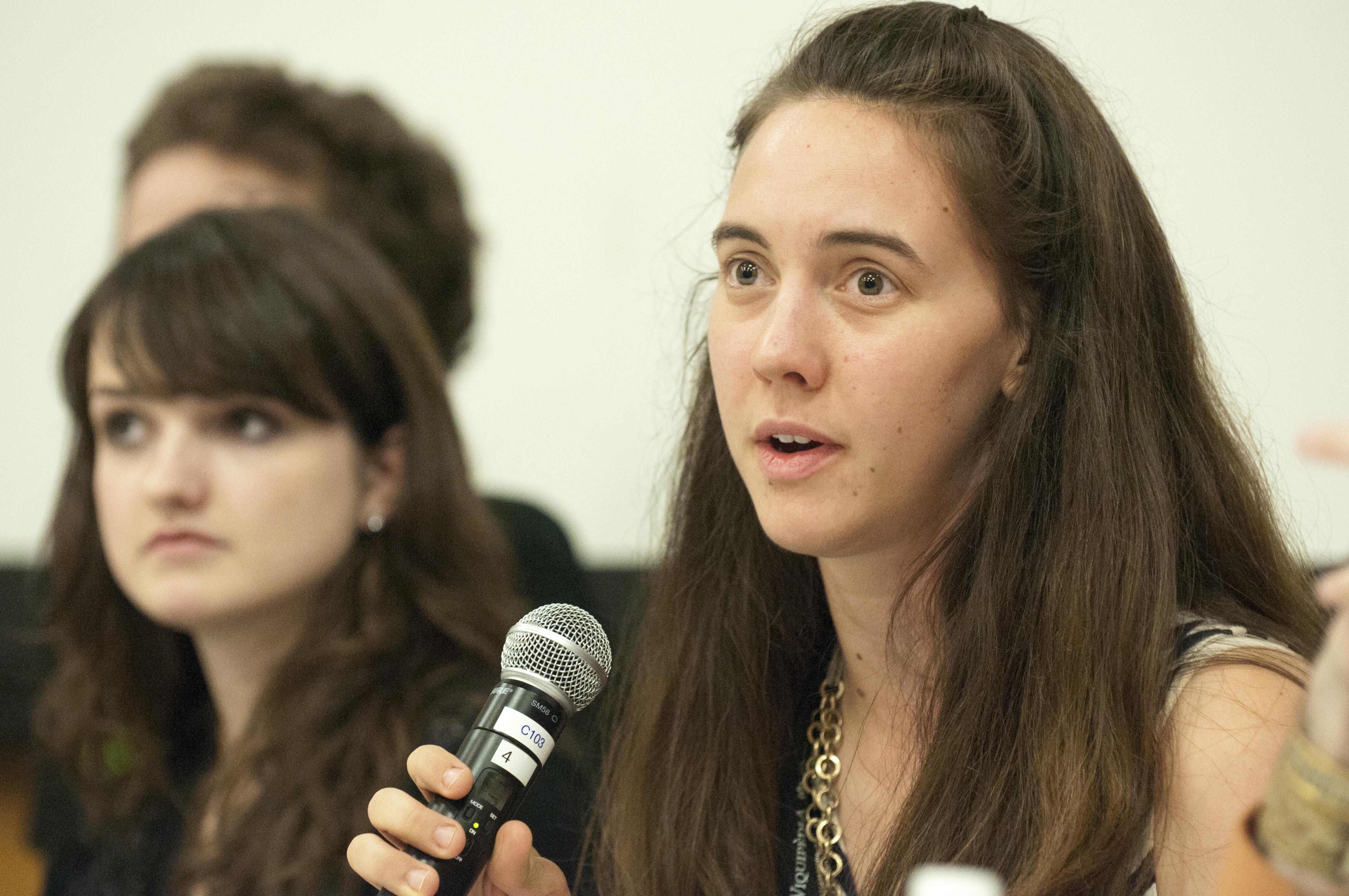
If conflicts and challenges are dealt with in a way that needs are met, then those involved can repair the damage done to their connections with the others involved and even build connections where there were none previously.
They feel fairly treated and respected, since they have been trusted to find solutions for themselves and put things right in their own way. Because they have been listened to, people in conflict are more ready to listen to others’ perspectives and emotional responses, and so empathy is developed. This can change the choices made in future situations, as mutual respect and consideration develop.
When harm has been caused by inappropriate, sometimes
thoughtless, negative behaviour then all sides need:
- A chance to tell their side of the story and feel heard
- To understand better how the situation happened
- To understand how it can be avoided another time
- To feel understood by the others involved
- To find a way to move on and feel better about themselves
Punitive disciplinary responses, on the other hand:
- Cause resentment rather than reflection
- Are rarely considered fair
- Do not repair relationships between those in conflict and indeed can make them worse
- Leave those labelled as wrongdoers feeling bad about themselves leading to further alienation
- Can often leave those people expected to act punitively feeling uncomfortable and frustrated – and wishing there was an alternative
A PIECE OF THE JIGSAW
